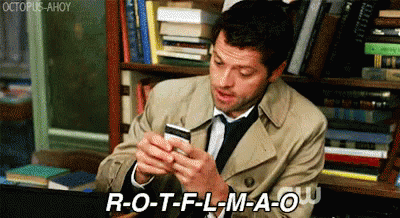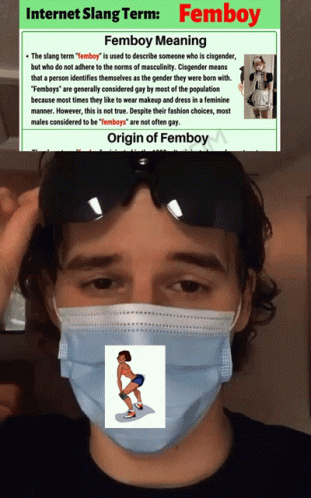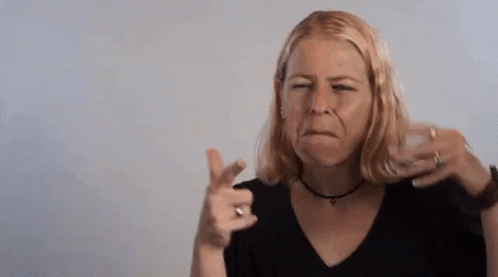What Does Internet Slang Mean?
Internet slang is a type of language that has been created to confuse the “older” generation. It is commonly used in online communities like forums and chat rooms, and it often involves abbreviations, misspellings, and other unconventional language conventions. Some examples of internet slang include “LOL” (laugh out loud), “BRB” (be right back), and “LMK” (let me know). Internet slang can be classified into various types, such as letter homophones (using letters that sound like words, like “u” for “you”), onomatopoeia (words that imitate sounds, like “hahaha”), and emojis (using symbols or pictures to convey meaning). It can also include jargon specific to certain professions or industries. The origins of internet slang can be traced back to the early days of the internet, when people began using abbreviations and shortcuts to save time and space in their online communications. Over time, internet slang has evolved and expanded, with new words and phrases being created and adopted by online communities. Internet slang is commonly used in casual and informal online conversations, and it is constantly evolving as new words and phrases are introduced. While it can be a fun and playful way to communicate online, it can also be confusing for those who are not familiar with the slang. In conclusion, internet slang is a unique form of language that has emerged from online communities. It is characterized by abbreviations, misspellings, and unconventional language conventions. It is commonly used in online conversations and can be categorized into different types. While it can be confusing for those unfamiliar with the slang, it is a fun and expressive way to communicate online.



What Does Internet Slang Mean From a Girl?
When a girl uses internet slang, she is likely using it in the same way as everyone else. Internet slang does not have a specific meaning from a girl, as it is a form of language that is used by people of all genders.
Girls use internet slang similarly to everyone else, as it is a way to communicate online in a casual and informal manner. They may use abbreviations like “LOL” or “BRB” to express laughter or indicate that they will be right back. They may also use emojis to convey emotions or reactions.
In terms of how to reply to internet slang from a girl, it is best to respond in a similar manner. If she uses an abbreviation or emoji, you can use the same or a similar one to show that you understand and are engaged in the conversation. For example, if she says “LOL,” you can respond with “LOL” or another abbreviation like “ROFL” (rolling on the floor laughing).
Overall, internet slang does not have a specific meaning from a girl, and girls use it similarly to everyone else. It is a fun and expressive way to communicate online, and it is important to engage with it in a lighthearted and playful manner.
Example 1:
- Girl: Hey, did you see that hilarious meme I sent you?
- Friend: LOL, yes! It was so funny. 😂
Example 2:
- Girl: I’ll be right back, just need to grab a snack.
- Friend: No problem, take your time. BRB! 🍿
Example 3:
- Girl: That movie last night was amazing!
- Friend: I know, right? It had me ROFL! 🤣
Example 4:
- Girl: I can’t believe it’s already Friday!
- Friend: IKR? Time flies. TGIF! 🎉
Example 5:
- Girl: I’m so excited for the concert tonight!
- Friend: Same here! Can’t wait to see our favorite band. 🤘
What Does Internet Slang Mean From a Guy?
When a guy uses internet slang, it can have similar meanings and usage as when a girl uses it. However, there may be some differences in how guys use internet slang compared to girls. Here are some things to consider:
-
Similar meanings: Like girls, guys use internet slang to communicate online in a casual and informal manner. They may use abbreviations, misspellings, and emojis to convey emotions, reactions, or to save time and space in their online conversations.
-
Compliments and appreciation: When a guy uses internet slang towards a girl, it could imply different things. It could signify a compliment to her appearance or a way of appreciating her exceptional ability. Alternatively, it could be a flirty hint that he likes her.
-
Acknowledging accomplishments: A guy might use internet slang to recognize a girl’s impressive achievements, such as giving an amazing work presentation or winning a challenging sports event.
-
Flirting and hinting interest: At times, a guy might use internet slang as a playful way of flirting with the girl. He may compliment her in a fun or flirtatious manner. If a guy uses internet slang frequently, it could be his way of subtly hinting that he likes her. He may do this to grab her attention or show his interest in her.
When responding to internet slang from a guy, it is best to consider the context of the conversation and the relationship you have with him. If you’re unsure of the meaning behind his use of internet slang, you can always ask for clarification in a lighthearted and playful manner.
In conclusion, while internet slang does not have a specific meaning from a guy, guys use it similarly to girls as a way to communicate online in a casual and informal manner. It can be used to compliment, acknowledge accomplishments, flirt, or hint at interest. It is important to engage with internet slang from a guy in a lighthearted and playful manner, and to consider the context and relationship when responding.
Example 1:
- Guy 1: Just finished binge-watching the new season of that show. It was so good!
- Guy 2: Dude, it was fire! I couldn’t stop watching.
Example 2:
- Guy 1: Going to the gym later. Need some motivation.
- Guy 2: You got this, bro! Beast mode activated!
Example 3:
- Guy 1: Check out this meme I found. It’s hilarious!
- Guy 2: Haha, that’s gold! Gotta share it with the squad.
Example 4:
- Guy 1: Finally got my driver’s license!
- Guy 2: Lit, man! Time to hit the road and explore.
Example 5:
- Guy: Just got a new job offer. Super excited!
- Friend: That’s awesome! Congrats, dude!
- Guy: Thanks, man! It’s a game-changer for me.
Origin of Internet Slang
The origins of internet slang can be traced back to the early days of the internet, when people began using abbreviations and shortcuts to save time and space in their online communications. Over time, internet slang has evolved and expanded, with new words and phrases being created and adopted by online communities. It is not clear if internet slang is a derived word or if it originated from a popular typo. However, it is possible that some internet slang words and phrases, like “HODL,” originated from misspellings or typos and were popularized by online communities.
Frequently Asked Questions
Slangs similar to Internet Slang
Internet slang is a unique form of language that has emerged from online communities, characterized by abbreviations, misspellings, and unconventional language conventions. It is commonly used in online conversations and can be categorized into different types, such as letter homophones, onomatopoeia, and emojis. While it can be confusing for those unfamiliar with the slang, it is a fun and expressive way to communicate online.
Is Internet Slang A Bad Word?
No, internet slang is not a bad word or vulgar word. It is a form of language that people use on the internet to communicate efficiently and save keystrokes. It includes abbreviations, words, and expressions that are commonly used in online forums, social media platforms, and text messaging. While some internet slang may be considered informal or unconventional, it is not inherently bad or vulgar. It is important to note that the meaning and usage of internet slang can vary depending on the context and the intent of the user.
Is Internet Slang a Typo or Misspelling?
No, “internet slang” is not a misspelling or typo. It is a term used to describe the unique language and abbreviations used in online communities and conversations.





